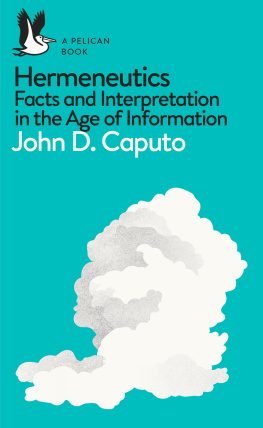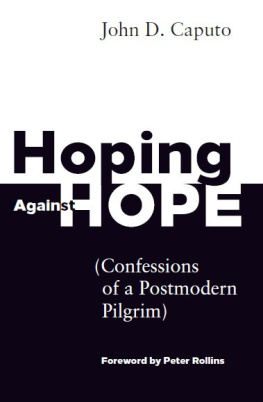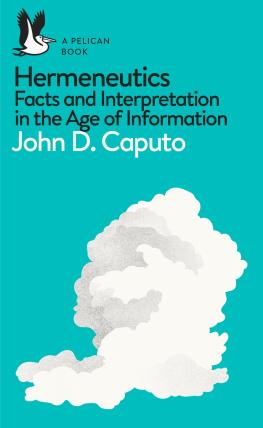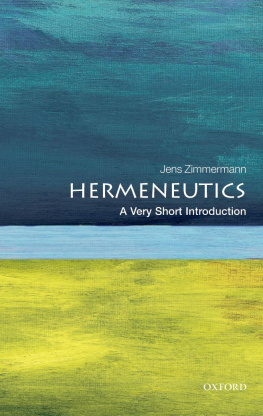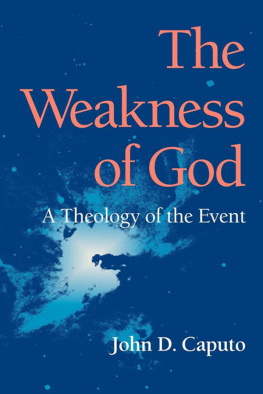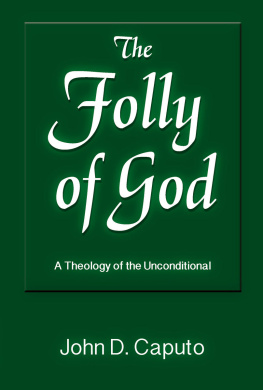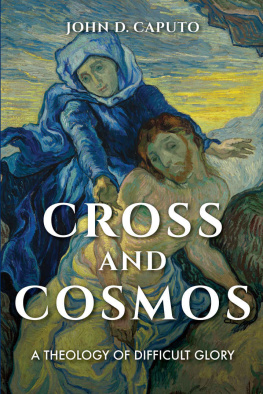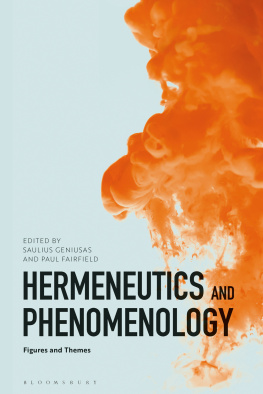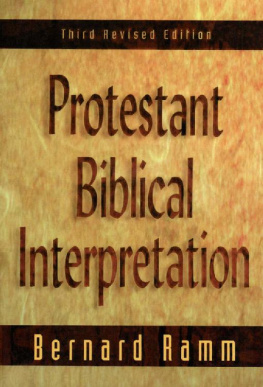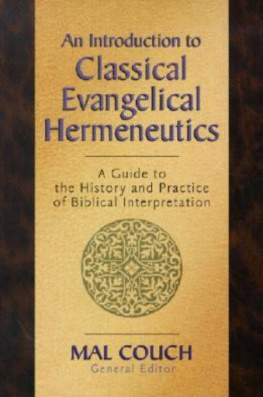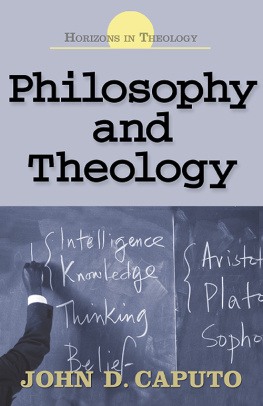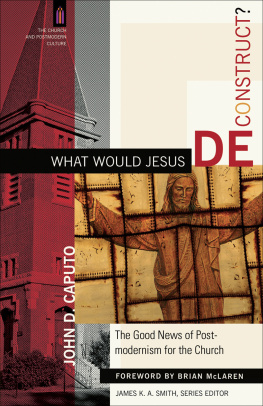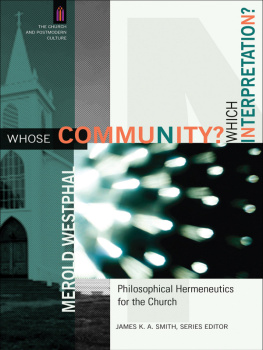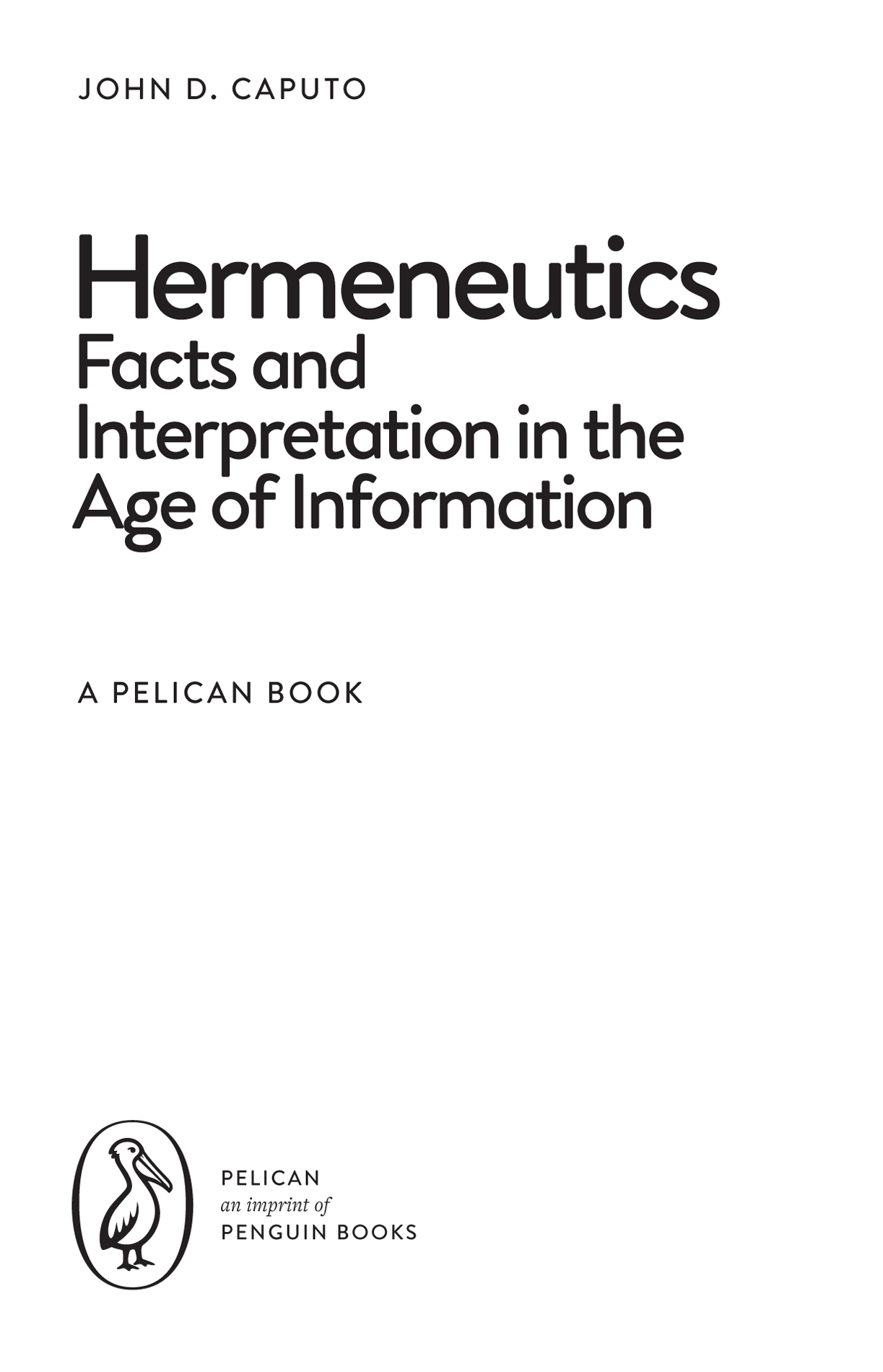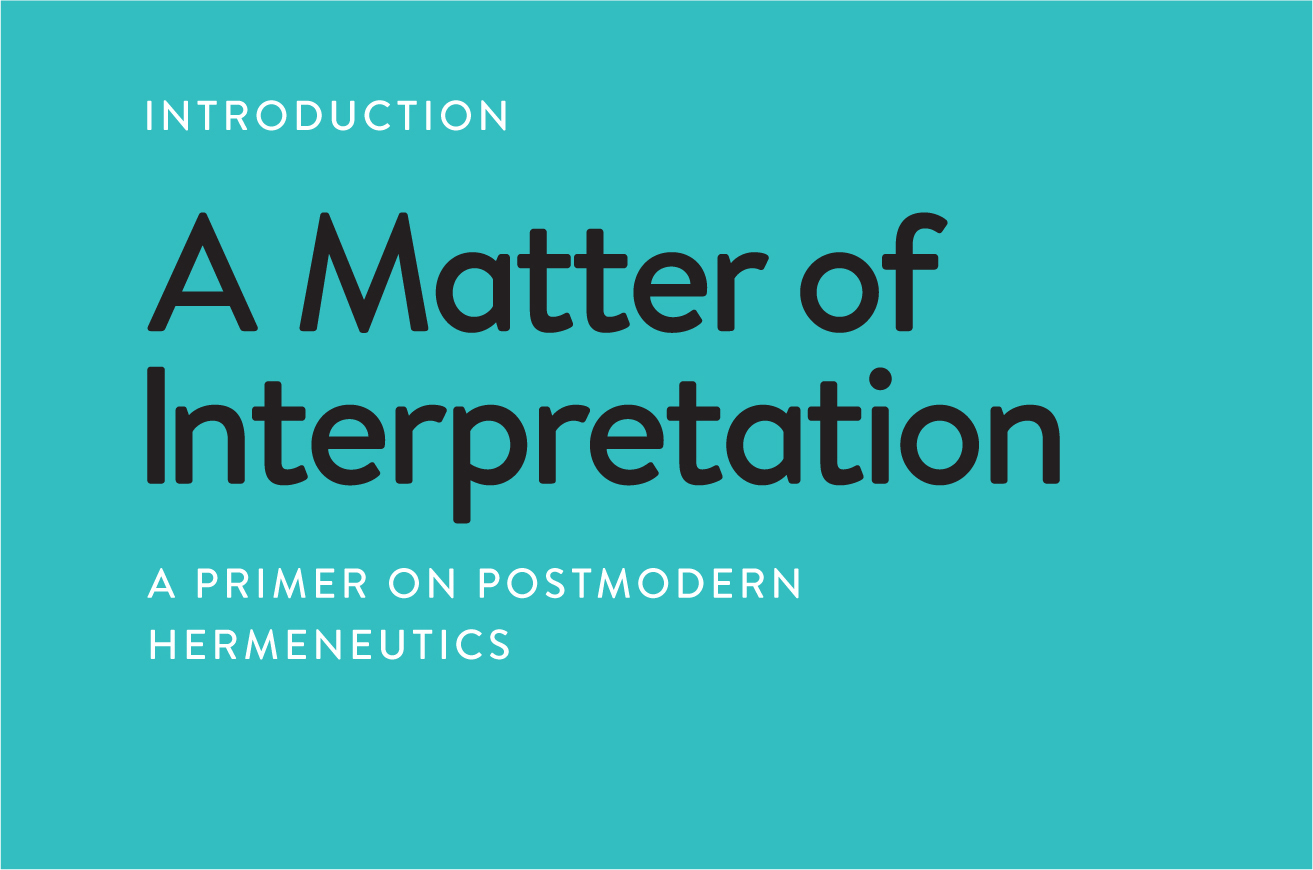PELICAN BOOKS
UK | USA | Canada | Ireland | Australia
India | New Zealand | South Africa
Penguin Books is part of the Penguin Random House group of companies whose addresses can be found at global.penguinrandomhouse.com.
First published 2018
Text copyright John D. Caputo, 2018
The moral right of the author has been asserted
Cover by Matthew Young
Book design by Matthew Young
ISBN: 978-0-241-30841-7
Acknowledgements
My thanks to Ananda Pellerin, my editor at Penguin, and to James Risser and Nancy Moules, who read earlier versions of this manuscript, all of whom gave me invaluable advice for which I am deeply grateful.
Thats a matter of interpretation.
That observation is an excellent way to make mischief, if you are so inclined. But, mischief-making aside, it also makes a sound philosophical point.
Still, a fact is a fact, yes? Its as clear as the nose on your face. Maybe not. Ask yourself, how many facts are there around you right now? You see the problem. We have to specify the terms, the framework. Are you counting noses or chairs or subatomic particles or what? We need an interpretation before we can start counting. The theory that everything is a matter of interpretation is called hermeneutics. This may sound like making mischief in the extreme, but it also makes perfect sense. Hermeneutics is cold, sober theory, and it lies at the basis of all our inventiveness in the sciences and the arts, of our democratic freedoms in politics, and of innovative institutions and living traditions. Without it, things would come to a grinding halt.
So, every time a well-known speaker insists, perhaps accompanied by a bit of table-pounding, The fact of the matter is , well, whatever interpretation it is that the speaker means to pound in, the right philosophical response is that there are no uninterpreted facts of the matter. Every matter of fact is a matter of the interpretation that picks out the facts. Hermeneutics is the theory that the distinction between facts and interpretation bears closer scrutiny, which is what we intend to undertake here.
To get these issues on the table, lets start with a short FAQ about postmodern hermeneutics, an imaginary dialogue in which I defend hermeneutics against an inquirer who treats the distinction between facts and interpretation as sound dogma. Well resume this dialogue in the Conclusion of the book to see what weve managed to accomplish in the meantime.
Hermeneutics: FAQ
What is hermeneutics?
Hermeneutics is the theory of interpretation. It is the theory that everything is a matter of interpretation.
But arent certain things just facts?
In hermeneutics, we defend the idea that there are no pure facts. Behind every interpretation lies another interpretation. We never reach an understanding of anything that is not an interpretation. We can never peel away the layers to get to some pure, uninterpreted, naked fact of the matter. No matter how loudly you proclaim you are just sticking to the facts, you are only raising the volume of your own interpretation. In hermeneutics, I like to say, interpretation goes all the way down.
Does this go for what you just said?
Of course. I am presenting an interpretation of hermeneutics, which I am prepared to defend against the alternatives, which I will point out as we go along. Interpretations go all the way down but some interpretations are better than others (which I will also explain as we go along). It is important to hold both those thoughts in our heads at the same time.
So, youre saying facts dont matter. How can you deny that there is a distinction between a neutral fact and an interpretation?
Facts matter quite a lot. Thats why it really matters that we understand what facts are. To understand anything at all requires having an angle on it, a perspective, an interpretive slant, in the absence of which we would just not understand, period. A neutral and disinterested understanding is pretty much a blank, unknowing stare. It is the look you see on the faces of students with a writing assignment without the least idea of what they are going to do. Their problem? No slant, no angle of entry, no interpretation. The facts you find are a function of the interests you have, and disinterested interpretations are nowhere to be found. A disinterested understanding has never got a term paper written, or anything else.
Are hermeneutics and interpretation interchangeable terms?
The word hermeneutics comes from the Greek, and interpretation from its Latin translation. But it is more useful to distinguish between them by saying that interpretation is an art, and hermeneutics is the theory of that art. An interpretation is a first-order act or process like an analysis of a film by a critic, of an X-ray by a radiologist, of the causes of the First World War by a historian, of an economic recession by an economist, or of the testimony of a witness by the jury. Hermeneutics is a second-order reflection upon such acts, upon the concrete work of interpretation carried out in art, in science, in classrooms and courtrooms, and in general.
So, in hermeneutics we show these people how to make interpretations?
We would never presume such a thing. Concrete interpretations are the business of the specialists in these particular fields. Hermeneutics does not pretend to be a know-it-all and it is not a how-to manual. It a philosophical theory. We show people how to understand what is going on in interpretation.
Why philosophical?
Because hermeneutics is a theory of truth it describes the nature of truth as something that is acquired only through interpretation and of being human, because it claims that interpretation lies at the heart of who we are as human beings.
Why add postmodern to hermeneutics?
Hermeneutics has a long history, stretching all the way back to Aristotle. Were dividing that history into two parts, the first of which we call the modern era, beginning in the biblical studies brought on by the Protestant Reformation and culminating in the nineteenth century. In the twentieth century, everything changed, and culminated in what were calling postmodern, which is the version that really interests us here.
So, whats the difference?
In the modern era, the humanities were put on the defensive in the face of the rising prestige of the new natural sciences and the success of the scientific method, which was threatening to take over everything. So, the people who worked in the humanities said, Look, in the humanities we also have a method, and we also attain truth and objectivity, but it is different. The natural sciences give us causal explanations of mathematically measurable phenomena, while in the humanities we reach an interpretive understanding of works of art or historical events, phenomena which have a non-mathematical meaning. The humanities are different but just as legitimate.
That makes a lot of sense. What was wrong with that?
First of all, let me be clear that postmodern does not mean

